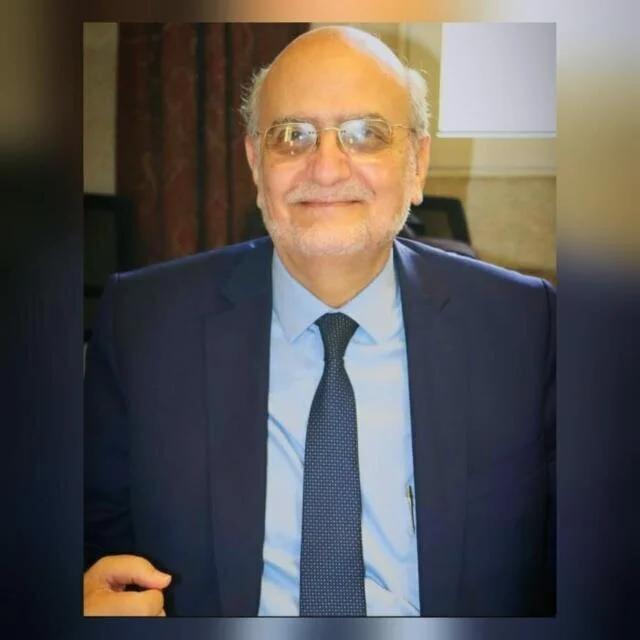Peace, Racism and the Future of Humanity
Dr. Michel E. Abs
Secretary General of the Middle East Council of Churches
The United Nations has designated September 21 as the International Day of Peace, and for the current year 2022 it has adopted the slogan “Ending racism and building peace.” The United Nations will also celebrate this day through various activities that have been detailed on its website, focusing on youth activities.
There is no doubt that the United Nations is a pioneer in various fields, and it constitutes a site for intellectual interaction and operational coordination of activities covering all aspects of life, peace and racism being the most important and most urgent ones today.
In this day and age, when the media and the means of communication cover the world, it may be easy to establish intellectual, cultural and educational activities in order to combat racism and consolidate social and world peace, but the same means that are used for good, slanderers and group instigators can use them for evil.
If the communication sites are replete with various types of sound and lofty campaigns, they are crowded with more campaigns of incitement, racial discrimination, abolitionist tendencies, hate speech and marginalization of the weak.
The problem lies in two main phenomena:
The first dimension lies in international migration and waves of displacement, from less affluent countries to countries that enjoy some of them. The universe turns into a mosaic of nationalities, religions, sects, races and ethnicities coexisting in one community and close to one another, whether they work in the same region or in the same building or in the same organization.
The second dimension lies in the competition for jobs and livelihood resources in modern societies in which existing resources have become scant due to the influx to them of waves of the displaced. The rush to sources of livelihood constitutes an essential element in racial discrimination and hate speech, especially if the arrivals are refugees and benefit from international aid that comes to them, which is not available to the residents of the receiving countries.
I am not going to deny the discrimination and hatred that some groups or families tend to raise their children on, be it for religious, psychological or historical reasons. Nevertheless, ignoring the economic dimension and being satisfied with educational and awareness work does not serve the purpose of social peace campaigns.
You cannot force groups into love, especially if some of these groups are newly displaced, and if one of these groups considers that the newly arrived snatches the sources of livelihood from its path, and this in a modern, harsh society, in which unemployment and economic marginalization play havoc.
Just as education and awareness campaigns are the key to ending racism and building social peace, social justice and the proper distribution of income and wealth are the solid foundation upon which this very same peace is built.
Is it not a fact that many are the problems between warring groups that researchers did discover that have economic and class dimensions?
Is it not true that many a time did we uncover that racial, religious or ethnic discrimination are based on class differences and senior positions practiced by one group against another one?
Humanity will not be able to enjoy peace without justice accompanied by educational and awareness campaigns.
In a related context, campaigns aimed at consolidating peace, especially by combating racism, cannot ignore the role of Christianity and the teachings of the Bible in this regard. Our Lord is for us Christians the Lord of peace, and it was mentioned by the Incarnate Lord that “Blessed are the peacemakers, for they will be called children of God” (Matthew 5:9), although He also added, “Do not think that I have come to bring peace on the earth; I have not come to bring peace, but a sword “(Matthew 10:34; Luke 12:51). The sword of Christ is His Love through which He has conquered the world. It moreover drove Him desperately to defending the human race and the tormented of the earth, whom other faiths had claimed to defend whereas they were crushing them.
In addition, the Master, Incarnate of the Father, did not wait for the Industrial Revolution and waves of local and global exodus to declare His siding with the heavily burdened as He said: “Come to me, all you who are weary and heavy-laden, and I will give you rest” (Matthew 11:28).
As for the culmination of this teaching of the Lord Christ, it lies in His defense of strangers, as He went as far as considering Himself to be one of them. The words of the hymn in the Eastern Liturgy “Give me this Stranger” sum up the whole scene for us. We extract from it the following:
“Give me this Stranger, who from his youth hath wandered like a stranger.
Give me this Stranger, whom his kinsmen killed in hatred like a stranger.
Give me this Stranger at whom I wonder, beholding him as a guest of death.
Give me this Stranger who knoweth how to take in the poor and strangers.”
The fight against racism as well as against all forms of discrimination between humans requires a firm belief in faith, which goes deep into the human soul and permeates all its commotions.
The fight against racism as well as against other social ills requires the warmth of the Master Who was incarnated for the sake of humankind.
What He said and did will forever remain an exemplar for us as a light that illuminates the world until the end of time.

